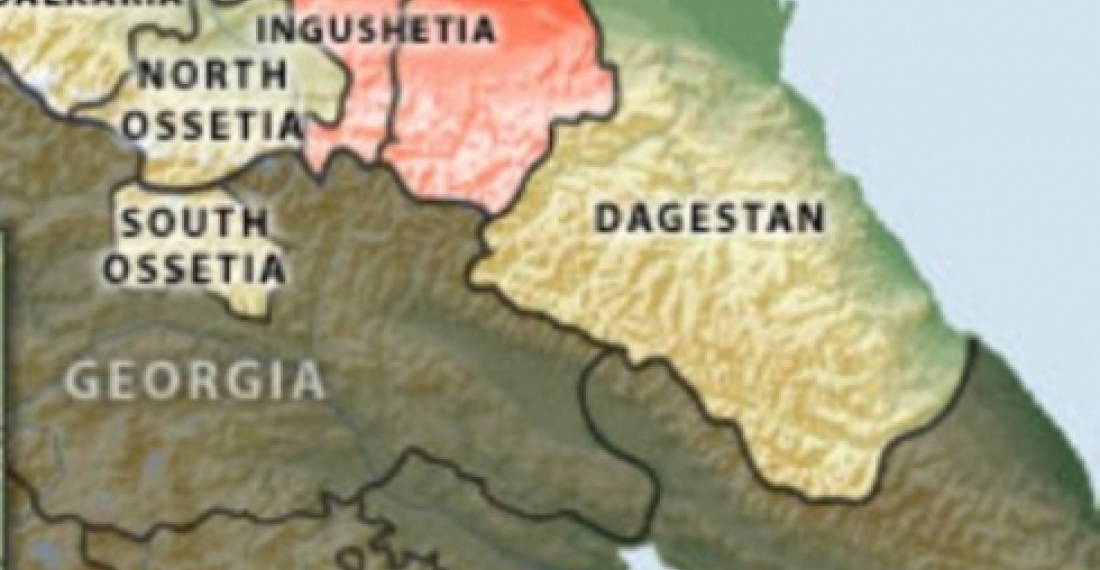A suicide bomber killed seven police officers who were attending the funeral of a slain colleague in the North Caucasus Republic of Ingushetia in the Russian Federation. At least 15 other people were wounded, four of them critically, in the Sunday attack, which occurred in the Malgobek district. Officials said that some of the wounded would be flown to Moscow for treatment.
The victims were paying their last respects to a fellow officer, Ilez Korigov, who was shot and killed on Saturday night. A 14-year-old girl who was a bystander was also wounded in that shooting.
Investigators said that the bomber mingled among the mourners in a courtyard and then detonated what appeared to be an explosive belt, packed with shrapnel, as a group of police officers arrived shortly before 10 a.m. Officials said they believed they had found the bomber's head and were working to identify him.
The president of Ingushetia, Yunus-bek Yevkurov, told local news agencies that he believed that a criminal gang, engaged in money laundering to support the separatist insurgency, was responsible for the bombing and the shooting on Saturday night. Mr. Yevkurov said he believed that the attacks were purposely timed for the Muslim holiday of Id al-Fitr, marking the end of the holy month of Ramadan.
Violence also marred the holiday in Dagestan, another republic in the North Caucasus where insurgents are also active. Masked gunmen stormed a Shiite mosque on Saturday night in the city of Khasavyurt and opened fire on worshipers, killing one and wounding at least seven, officials said.
About 60 people were in the mosque at the time for prayers ahead of breaking the Ramadan fast. The gunmen fled but left behind two large bombs. The mosque and nearby houses were evacuated while officials worked to deactivate the explosives.
Azerbaijani media reports that amongst those killed and injured during the bloody terrorist attack in Imam Ali Mosque in Dagestan's Khasavyurt region were citizens of Azerbaijan.
Elmin Elkhan Jafarov, 17, who was killed when unknown persons fired on the people, was buried in his hometown Pensar village in Azerbaijan's Astara region. His mother Gulara Jafarova told APA that their family had been living in Khasavyurt since 2001 and was engaged in small business. Elmin, the only son in the family, had been praying since his childhood. "That evening he went to the mosque to pray, after praying they had an Iftar dinner. Two unknown persons entered the mosque and fired on them as they were eating".
Eight injured people were hospitalized and Jafarov died because of heavy blood loss.
source: commonspace.eu







